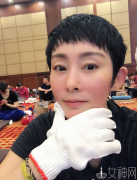中国股市高频交易退潮
China’s nascent high-frequency traders (HFT) are in retreat following a regulatory crackdown on short selling and a broad legal interpretation of “market manipulation” that encompasses trading practices that are allowed in other markets.
在中国监管机构打击卖空交易并对“市场操纵”进行宽泛的法律解释——使其覆盖在其他市场被允许的交易活动——之后,中国新生的高频交易员退缩了。
China’s stock market has recovered from the punishing rout of summer 2015. The benchmark index hit an 18-month high this month, following MSCI’s decision to include mainland shares in its emerging-markets index. But hedge funds employing HFT strategies, which proliferated during the rise, have never recovered.中国股市已经从2015年夏季的暴跌中复苏。在MSCI明晟将中国A股纳入其新兴市场指数之后,基准股指本月触及18个月来的最高点。但运用高频交易策略的对冲基金(这些对冲基金在市场上涨期间数量激增)从未复苏。Instead, HFT investors have shifted away from the stock market and towards commodities, where futures trading remains less heavily regulated, according to investors and analysts.实际上,据投资者和分析师们表示,高频交易投资者已经从股市转战大宗商品,后者的期货交易受到的监管依然不太严厉。“For stock-index futures the costs are now very high, to the point that these strategies often lose money. Costs have risen by a hundredfold. They’re restricting intraday speculation,” said Jiang Junlue, senior quantitative trader at Black Wing Asset Management, a Beijing-based hedge fund.北京对冲基金黑翼资产管理公司(Black Wing Asset Management)的高级量化交易员姜军略(音译)表示:“现在股指期货的成本非常高,以至于这些高频策略往往亏钱。成本已上涨了100倍。它们限制了日内投机。”Higher margin requirements raised costs for all investors, while those engaged in directional bets, rather than hedging, were subject to even higher fees.提高保证金要求提升了所有投资者的成本,而那些投入方向性下注(而非对冲)的投资者甚至被收取更高的手续费。Index futures turnover peaked at an average Rmb2.3tn in notional value per day in June 2015 but was Rmb14bn per day in May this year, according todata from Wind Information. Futures and options on individual shares do not exist in China.万得资讯(Wind Information)的数据显示,在2015年6月,指数期货日均成交量达到2.3万亿元人民币的峰值,但在今年5月日均成交量仅为140亿元人民币。中国不存在个股的期货和期权。Last week, a court in Shanghai issued a verdict in a closely watched case from July 2015 involving a Russian-owned company, Yishidun International Trading, known in English as Eastern Dragon.上周,上海法庭对一起发生在2015年7月的备受关注的案件作出判决,该案涉及一家俄罗斯人所有的公司伊世顿国际贸易公司(Yishidun International Trading),英文名是Eastern Dragon。The court fined Yishidun Rmb300m for manipulating the futures market and ordered the group to disgorge a further Rmb389m in profits. It also fined two Chinese executives, Gao Yan and Liang Zezhong, a total of Rmb1.8m and issued them suspended prison sentences. A broker at China Fortune Futures, Jin Wenxian was sentenced to five years in prison.法庭以操纵期货市场为由,对伊世顿罚款3亿元人民币,并进一步没收其3.89亿元人民币的利润。它还对该公司中国高管高燕和梁泽中总计处以180万元人民币的罚款,并判处缓期徒刑。华鑫期货(China Fortune Futures)经纪人金文献被判处5年有期徒刑。In a statement following the verdict, Yishidun said that the court “relied on a broad, catch-all subsection of the Chinese offence of ‘market manipulation’, instead of any of the established categories of the offence”.伊世顿在判决后发布声明称,法庭“依赖中国宽泛和一把抓的‘市场操纵’罪定罪,而非按照成熟的罪行类别定罪”。Yishidun added that an independent audit “did not find anything consistent with ‘market manipulation’ as this term is understood outside China”.伊世顿补充称,一项独立审计“没有发现与中国境外所理解的‘市场操纵活动’相符的交易行为”。Indeed, the court’s verdict does not describe distortions of stock or futures prices caused by Yishidun. Instead, the court found that the company gained a speed advantage over other investors by connecting its computer directly to the Shanghai Futures Exchange without the required supervision by a futures brokerage.的确,法庭的判决书没有说伊世顿引发了股票或期货价格扭曲。相反,法庭认定,伊世顿在没有受到必要监管的情况下,通过将其计算机直接接入上海期货交易所(Shanghai Futures Exchange),获得了相对于其他投资者的速度优势。Market participants say that, while foreign exchanges seek profits from selling high-level access to market infrastructure, state-owned Chinese bourses effectively operate as units of the China Securities Regulatory Commission. As such, they focus on market stability and don’t seek to offer cutting-edge services to investors.市场参与者表示,尽管外国交易所愿意销售高层次的市场基础设施接入,寻求借此盈利,但国有的中国交易所实际上是中国证监会(CSRC)旗下单位。因此,它们致力于保持市场稳定,而不寻求向投资者提供尖端服务。“The terrifying aspect of this case is that these two guys weren’t elite traders. They probably just used an algorithm from their previous company, yet they were able to earn so much, so fast in China,” said a Chinese HFT fund manager. “In China the strategy and the technology are still so far behind the international level.”中国一位高频基金经理表示:“该案令人担忧的一面是,这两人并不是精英交易员。他们可能只是使用了之前公司的一种算法,然而他们却能够在中国如此快地获取暴利。在中国,这种策略和技术仍远远落后于国际水平。”Before the clampdown, HFT investors frequently designed strategies for the stock-index futures market. The next-day settlement mechanism for cash equities on mainland stock exchanges, known as T+1, makes HFT strategies difficult to execute. However, the China Financial Futures Exchange uses a T+0 system that allows instant settlement.在遭到打击前,高频交易投资者经常设计针对股指期货市场的交易策略。中国内地交易所对现货市场实行的“T+1”次日结算机制,使高频交易策略难以执行。然而,中国金融期货交易所(China Financial Futures Exchange)采用实时结算的“T+0”机制。In late 2015, the CSRC issued draft rules requiring algorithmic traders to submit their strategies for approval before putting them into effect. The futures exchange also placed new limits on speculative trading. The preapproval rules were put on hold last year, according to local media.2015年末,中国证监会发布草案,要求算法交易员在实施交易策略之前必须报批。期货交易所也对投机交易出台了新的限制。据国内媒体报道,去年证监会搁置了预批准规则。A former head of HFT for the proprietary trading unit of a major Chinese brokerage said that the biggest mistake made by Yishidun was that its Russian owners, who are based in Hong Kong, were too loose-lipped about their success in the market.中国一家大型经纪商的自营交易部门前高频交易主管表示,伊世顿的最大错误是,其常驻香港的俄罗斯所有者过于口无遮拦地谈论他们在市场上的成功。“They were out and about in Hong Kong bragging about their profits. That wasn’t a good idea. In China, when you earn money, you’re supposed to keep a low profile,” he said.他说:“他们在香港到处吹嘘自己的利润。这不是一个好主意。在中国,当你赚钱的时候,你理应保持低调。”The court said the Russian owners, Georgy Zarya and Anton Murashov, will be tried separately. A Yishidun spokesman said the company was not aware of any further legal proceedings in China against the company or its owners. He also denied that Mr Zarya and Mr Murashov had bragged about profits.上海的法庭表示,两位俄罗斯老板格奥尔基?扎亚(Georgy Zarya)和安东?穆拉绍夫(Anton Murashov)将另案受到审判。一位伊世顿发言人表示,伊世顿不知道有针对该公司或其老板的任何进一步法律诉讼。他还否认了扎亚和穆拉绍夫吹嘘利润的说法。Analysts say that regulators want to discourage speculative trading that they see as disconnected from the fundamental purpose of capital markets in financing investment in real economic activity.
分析师们表示,监管者希望抑制在他们看来与资本市场为实体经济活动提供融资这一根本目的无关的投机交易。“The focus of regulation right now is to guide investment into the real economy. At the moment, authorities aren’t inclined to approve new products that enable purely financial speculation,” said Wang Hongying, former vice-director of the research institute at China International Futures Co.曾担任中国国际期货经纪有限公司(China International Futures)研究院副院长的王红英表示:“如今的监管重点是引导投资进入实体经济。眼下有关部门不愿批准允许纯粹金融投机的新产品。”Last month, the CSRC fined two of China’s largest investment banks for facilitating bearish bets by a unit of Citadel Securities, a Chicago-based brokerage that is considered a pioneer in HFT. Citadel was not accused of wrongdoing.今年5月,中国证监会对中国最大的两家投资银行进行了处罚,原因是它们为总部位于芝加哥的Citadel Securities旗下机构进行看跌押注提供方便。Citadel被视为高频交易的先驱,该公司没有被控不当行为。Dutch HFT group IMC BV said last August that it had received inquiries from the CSRC about futures trading during the summer of 2015. The agency has never publicly accused IMC of wrongdoing.荷兰高频交易集团IMC BV去年8月表示,该公司收到了中国证监会关于其在2015年夏季期货交易的问询。中国证监会从未公开指责IMC从事了不当交易。- 上一篇:特朗普限制钢铁进口将伤及盟友
- 下一篇:中药企业寻求通过临床试验证明中药疗效




